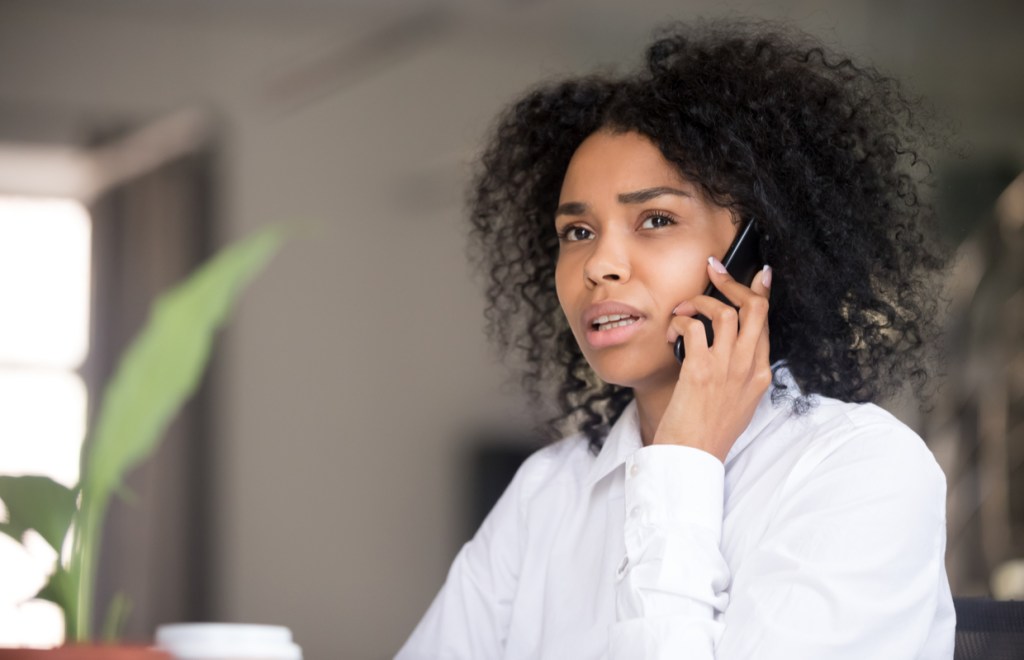How to know your worth (and discover your true values)
How do you achieve a sense of self that does not rely on the judgements of others? Suzy Bashford seeks some expert help...

You’d think that someone who runs workshops on self-esteem and writes about that subject would have a healthy understanding of how to know your worth, wouldn’t you? Yeah, so did I. That is, until recently, when my self-worth came crashing down and I ended up sobbing at my kitchen table with a good friend.
The trigger was a tough week: stressful meetings with my son’s headteacher had coincided with the loss of a lucrative client and fallouts in some of my close relationships. This accumulation had exposed the stark fragility of my self-worth. While my head may have understood the theory of valuing yourself, regardless of how life was going, my heart wasn’t convinced.

Is your self-worth dependent on external validation?
So, I enlisted the help of The Comparison Coach, straight-talking Lucy Sheridan, who specialises in helping clients live on their own terms. Immediately, she picked up on how much I link my identity to external validation, remarking that I littered my words with ‘shoulds’– a telltale sign. ‘To be a good mum, I should be serious and responsible’; ‘to be a success, I should earn more’.
It didn’t surprise her at all that a week of things not going well had derailed me, and left me feeling worth so much less. She got to the nub of the issue right away: I’d become overly obsessed with other people’s opinions and, in the process, lost touch with who I really was.
‘We think we know our values [and value], but it’s so easy, especially in the tsunami of social media today and busyness, to get set adrift by other people’s judgements and ideas about what makes a worthwhile life,’ she said.
What are your true values?
Sheridan pushed me to truly consider what I value. She also nudged me to push past the stock answers that we all trot out and go deeper. She planted a seed to help me when she said that she could feel my ‘inner punk’ screaming to get out and express herself, but she was currently drowning under the relentless lists of ‘shoulds’ and ‘to-dos’.
‘Don’t be afraid of your punk energy,’ she urged me. ‘It’s OK not to people-please. It’s alright to let some expectations go.’ I’d never thought of myself as rock ‘n’ roll before, but once I’d sat with the idea a while, I liked it.
The more I journalled and read the books she recommended, the more ‘Suzy the secret anarchist’ emerged, and the more I realised how much the way I saw the world was in conflict with others around me. Some of the scribbles made me blush – there was a lot swearing – but Sheridan encouraged me to embrace this, rather than shy away from it.

Getting to know yourself
As I ventured on to explore this ‘darker’ side, I noticed a sense of relaxation flow through me, allowing another craving to bubble up to the surface: a deep desire to be more playful. Wild, even.
Yes, I wanted to be a good mum, wife, daughter, friend, and an all-round good, healthy-eating, deadline-hitting human. But hell, I also wanted to say ‘screw it!’ to all these pressures and jump in rock pools and drink too much and eat chocolate cake.
It was refreshing, in Sheridan, to find someone who actively encouraged me to indulge in these things occasionally, as radical acts of self-love. As she called them: ‘nourishment not punishment’. I looked forward to our Skype calls, where I was free to be and explore my self without fear of judgement; a rare luxury in my hectic schedule and interactions with others.
Our long conversations were punctuated by much raucous laughter and things you wouldn’t want your gran to hear you say, as well as a few tears. She helped me see the ridiculousness of some of the notions I’d absorbed about myself.
Self-worth and body image
Take my attitude to my body, for example. I discovered that I harboured this idea that I should do a HIIT workout every day and only ‘eat clean’ from Monday to Friday. When Sheridan interrogated me about why, I realised that I had some random idea about being thinner in order to feel good about myself.
She helped me come to the conclusion that my relationship with my body should be about me, and what I think of it, no one else. This was liberating and opened me up to be much more grateful for all the many things it does for me, rather than how it looks to others. The more I disregarded what I’d been told was important in life, the more I gained confidence in what I genuinely believe is important and fulfilling.
Through journalling, it quickly became apparent that I’m at my happiest when I’m scribbling down ideas that excite me, or walking the dog with friends, enjoying the breathtaking views where I live in the Scottish Highlands, or snuggling up with my family by the fire, wearing comfortable clothes and no make-up. The ability to fit these regularly into my life are my markers of success.

Staying aligned with your values and worth
To keep me plugged in to what I really value in life on an ongoing basis, Sheridan suggested that I create a blog, which I could return to regularly as away to ground myself, and stop myself getting derailed so frequently.
For some people, things like yoga and meditation facilitate this but, for me, writing is when I detangle what I think from what others think. As Sheridan said: ‘Your self-worth is tied to being expressive. You have to own that, because self-ownership is linked to self-worth.’ My blog, on bigjuicycreative.co.uk, is a constant reminder that a ‘life of worth’ for me is one that is lived as big, juicy and creative as possible.
Visualisation exercises for discovering your self-worth
Another exercise was a ‘future self visualisation’, which Sheridan guided me through. My imagination conjured up an old lady called Wildflower who lived in a forest, loved wild swimming in her garish pink cap with her elderly mates, and didn’t give a hoot about what people thought of her.
Now, when my confidence is floundering, I often find myself thinking: what would Wildflower do? Would she really care about this? The most challenging aspect of working with Sheridan was the realisation that, to protect my self-worth, I needed to set clearer boundaries with those around me.
I’ve always prided myself on being open and not ashamed of being vulnerable. What I didn’t realise was that being so honest about my insecurities led to others thinking it was OK to offer up their, often critical, opinions, which had gradually been chipping away at my confidence.
‘From now on,’ said Sheridan. ‘Your personal growth is not available for feedback. Remember: love many, trust few, always paddle your own canoe.’ I started being more ruthless about who I gave my time and energy to, and being clearer about the type of behaviour I would, and would not, tolerate.

Set boundaries to reflect your newfound worth
I began changing the subject on the phone to friends when they veered into territory that didn’t support my newfound confidence. This showed that I was no longer prepared to have those conversations.
Taking this tougher stance, initially, felt awkward, and there’s a bit more distance in some of my relationships. But, I’m hoping, over time, as this becomes the ‘new normal’, those will close again. A breakthrough came when I decided to take myself away on a writing retreat for a week.
Before I’d met Sheridan, I’d have taken a very rigid, driven, punishing approach. Perhaps I wouldn’t even have gone, caring too much about the quizzical reactions I was getting on hearing my plans. (‘You’re leaving your family for a week to go to the beach on your own?’) Sheridan encouraged me to use the time to reconnect with my true self and go with the flow, rather than forcing the words out.
I didn’t get as much work done as I’d planned, but I didn’t beat myself up and instead savoured my own company. I took long walks along the beach, listened to cheesy tunes, ate what I wanted and had impromptu paddles in my underwear. It was a genuinely life-affirming experience.
I wasn’t striving to be someone else. I wasn’t wondering how my photos would look on Facebook, or how many likes they’d get. Ultimately, I was genuinely loving and fully experiencing exactly where I was and the skin I was in. As I belted out the words to Whitney Houston’s Greatest Love Of All while making my dinner, for the first time, I actually believed them.
How to know your worth and stay true to yourself
Follow these tips on how to realign yourself with your true values and know your worth…
Staying connected to your values
- Unfollow people on social media, and set clear boundaries with those in the real world who don’t make you feel good.
- Regularly reconnect with your values. It could be via a blog or journal, or you could take five minutes every day to read a reminder of what you value and the type of person you want to be.
- Say no to people and events if they’re not in line with what you value. Do it kindly, confidently and unapologetically.
Discovering your true values
- Do a ‘future self’ or ‘inner mentor’ visualisation, to help you tap into the life you truly want to lead and the person you want to be. Author and coach Tara Mohr offers a free one on her website, taramohr.com/pbbookmaterials.
- Identify role models you gravitate towards and use them for inspiration.
- Take some time out on your own, to get out of your head, into your body, so you’re not just thinking about what matters to you but really feeling it, too.
- If journalling to uncover your values, first free-write about the values of others around you, such as your partner, as well as the culture you live in. Doing this helps to identify and unplug from others’ values. Then journal about your values.






